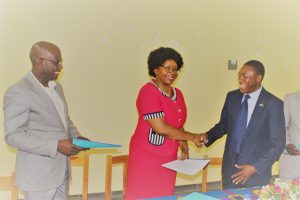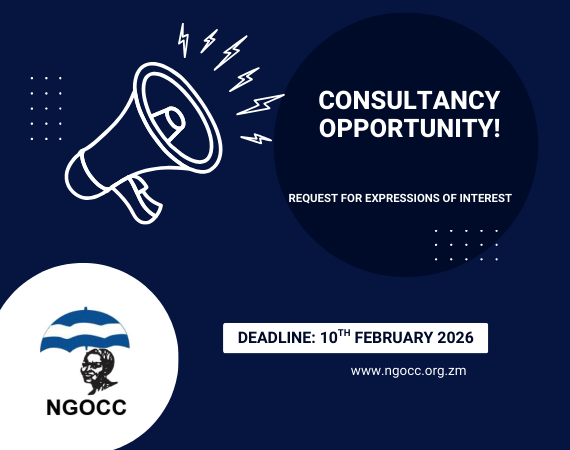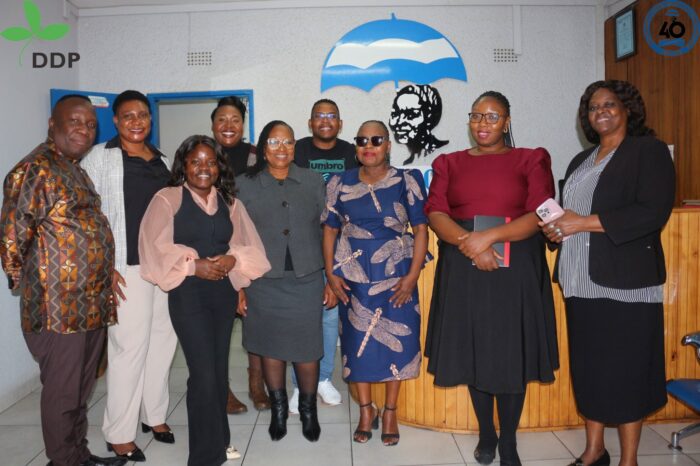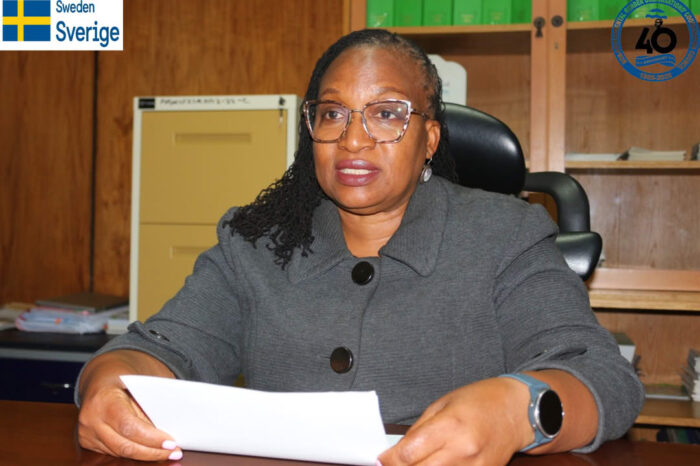MoU BETWEEN NGOCC, CLIMATE CHANGE ALLIANCE AND IN-SERVICE TRAINING TRUST TO TACKLE ADVERSE EFFECTS OF CLIMATE CHANGE
 The signing of the Memorandum of Understanding (MoU) signifies the start of a long standing relationship for the Non-governmental Gender Organisations’ Coodinating Council (NGOCC), Climate Change Alliance (C2-A) and the In-Service Training Trust (ISTT) in tackling some of the adverse effects of climate change, especially on women and children in rural Zambia, says NGOCC Executive Director Engwase Mwale.
The signing of the Memorandum of Understanding (MoU) signifies the start of a long standing relationship for the Non-governmental Gender Organisations’ Coodinating Council (NGOCC), Climate Change Alliance (C2-A) and the In-Service Training Trust (ISTT) in tackling some of the adverse effects of climate change, especially on women and children in rural Zambia, says NGOCC Executive Director Engwase Mwale.
During the signing ceremony of the MoU between NGOCC, C2-A, and ISTT yesterday, Ms. Mwale said the three organisations have agreed to work together in raising awareness and the delivery of knowledge on climate change and its attendant effects on communities.
“The signing of this MoU signifies the start of a long standing relationship for the three organisations in tackling some of the adverse effects of climate change, especially on women and children in rural Zambia. It is a fact that climate change is increasingly becoming a challenge not only for Zambia but the globe at large. Hence, today yet again marks a very important milestone for the women’s movement and indeed for us NGOCC as we actualise our partnership with C2-A and ISTT. Climate is changing at an increasing rate and scale, with devastating impact on the integrity of species and ecosystems thereby exerting considerable stress on vulnerable countries’ communities and sectors most of whom are women and children especially people with disabilities,” Ms. Mwale said.
“In the recent past, Zambia has started experiencing the impacts of climate change. The country has in the last few years experienced extreme weather such as long dry spells. Therefore, the purpose of this MoU is to establish collaboration between the parties identified in this agreement (C2-A, ISTT and NGOCC) as complimentary institutions with common cause to accelerate mobilisation and delivery of climate change knowledge building interventions among community and enterprise beneficiaries particularly those operating in climate sensitive economic sectors such as agriculture, tourism, energy and processors among others. Under this partnership, the following key strands of co-oepration have been identified and prioritised as the thrust of cooperation; training and awareness activities in adaptation and mitigation, green and resilient technological solutions uptake, building of climate change champions and change agents among others.”
Ms. Mwale said the partnership was aimed at complimenting what NGOCC was implementing with Rural Electrification Authority (REA) as well as other efforts by other actors in raising awareness on the effects of climate change for the communities to adopt green and resilient technological solutions uptake in order to adapt to the conditions of the changes in climate.
Ms. Mwale said green and resilient technological solutions will reduce the use of firewood and kerosene, thereby reducing harmful emissions which negatively impact on women and children.
“Furthermore, the time that women spend on collecting firewood can instead be used to diversify their sources of income. In addition, capacities to promote community awareness on energy saving technologies will also be strengthened,” said Ms. Mwale.
And C2-A Executive Director Noah Zimba said there was need to mitigate the impacts of climate change especially on the most vulnerable in society.
Meanwhile, ISTT Executive Director Collins Sakajila said the MoU was going to help the three organisations equip communities with knowledge on the adoption of climate smart economic ventures in various sectors such as agriculture.








